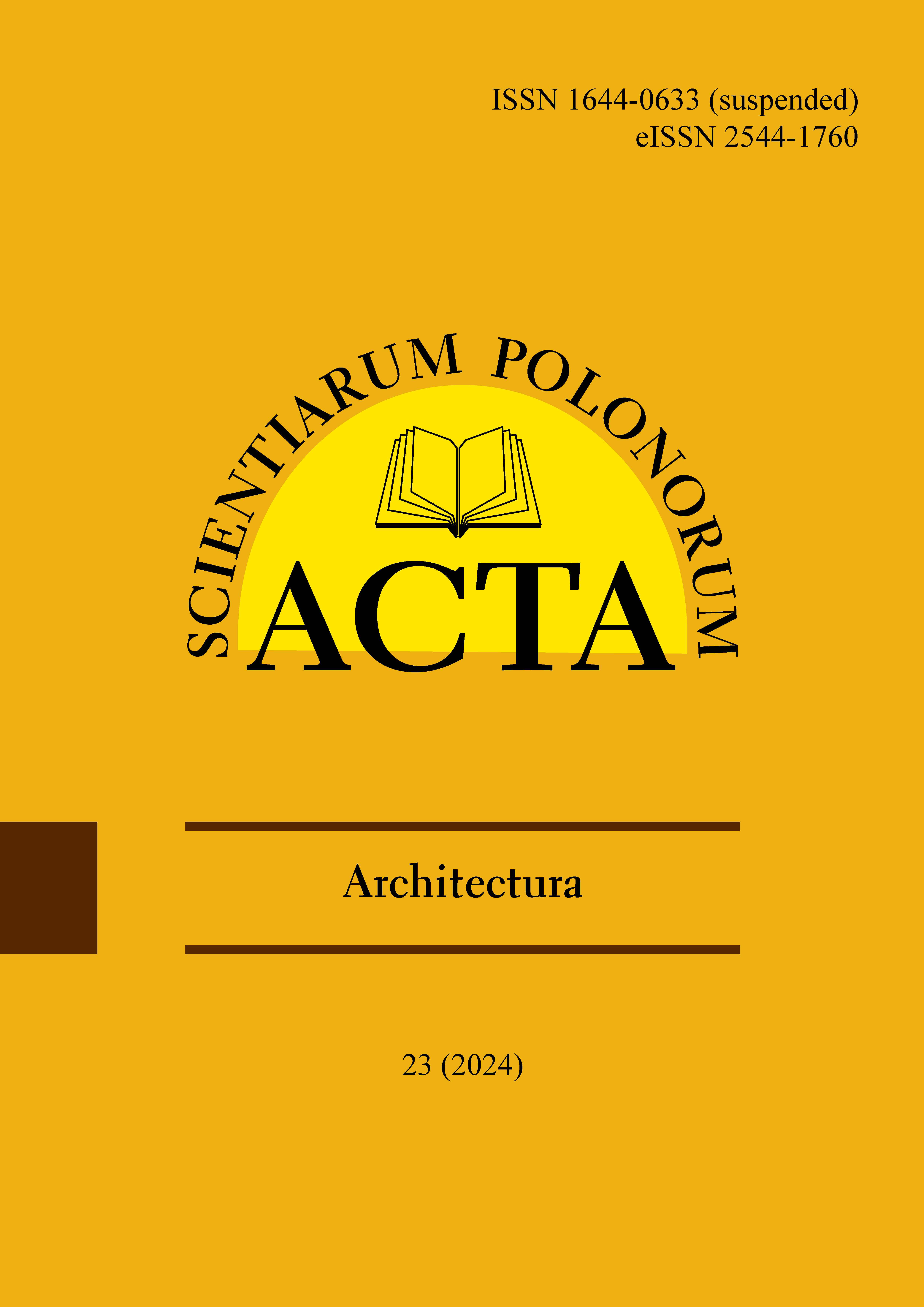Main Article Content
The deformable cement adhesives types C2S1 and C2S2 are usually used to glue ceramic slabs onto so-called critical substrates (other than concrete), including under changing weather conditions. The declared strengths of these adhesives attached to substrates can be found in the manufacturer’s standards and declarations. The use of cement adhesives on surfaces other than concrete or in other applications, such as a lightweight heated floor system (LHFS), should meet safety standards. To determine this, basic strength parameters for deformable adhesives, which have not been specified until now, need to be set. For this purpose, many analyses were performed, such as tensile and compressive strength tests, as well as the measurement of displacements in the thermal chamber, using, for example, digital image correlation and extensometric techniques. It was possible to define the main strength parameters of deformable adhesives, such as Young’s modulus (E), Poisson’s ratio (ν) and linear thermal expansion coefficient (α). These multiple measuring techniques were able to authenticate the obtained results, determining the maximum compressive strength of deformable adhesives, as well as longitudinal and transverse deformations. The research material parameters E, ν and α can be used for the calculation of LHFS with a heating coil, as well as for other building partitions or on critical substrates (different from concrete), using some of the many numerical methods available.
Article Details
Artemenko, S. E. (2003). Polymer composite materials made from carbon, basalt and glass fibres, Fibre Chemistry, 35 (3), 226–229. (Crossref)
ASTM International [ASTM], (2017). Standard Test Method for Poisson’s Ratio at Room Temperature. Specification (ASTM E132-17). ASTM International, West Conshohocken.
Dow Chemical Company (2008). Tech solutions 610.0 Styrofoam™ brand extruded polystyrene insulation for lightweight fill application. November.
Dow Chemical Company (2014). Technical Data. Styrofoam™ LB-X Extruded Polystyrene Foam XPS (EN13164) – free from HCFC – blue color.
Elektra Kardo (2018). Insulation systems without screeds. Product catalog. 2018 edition. Retrieved from: https://kardosystems.com/wp-content/uploads/sites/5/2022/08/KATALOG-ENG-2018.08-ilovepdf-compressed.pdf [accessed: 25.03.2024].
Elragi, A. E. (2012). Selected Engineering Properties and Applications of EPS Geofoam. Softoria. Retrieved from: https://michiganfoam.com/wp-content/uploads/2019/03/eps_geofoam_selected_engineering_properties.pdf [accessed: 25.03.2024].
European Committee for Standardization [CEN], (2007a). Adhesives for tiles. Requirements, evaluation of conformity, classification and designation. Specification (EN 12004:2007+A1:2012). European Committee for Standardization, Brussels.
European Committee for Standardization [CEN], (2007b). Adhesives for tiles. Determination of tensile adhesion strength for cementitious adhesives. Specification (EN 1348:2007). European Committee for Standardization, Brussels.
European Committee for Standardization [CEN], (2010). Adhesives for tiles. Determination of transverse deformation for cementitious adhesives and grouts. Specification (EN 12002:2010). European Committee for Standardization, Brussels.
European Committee for Standardization [CEN], (2014). Ceramic tiles. Part 8: Determination of linear thermal expansion. Specification (EN ISO 10545-8:2014). European Committee for Standardization, Brussels.
European Committee for Standardization [CEN], (2015). Thermal insulation products for buildings. Factory made extruded polystyrene foam (XPS) products. Specification (EN 13164:2012+A1:2015). European Committee for Standardization, Brussels.
European Committee for Standardization [CEN], (2016a). Ceramic tiles. Definitions, classification, characteristics, evaluation of conformity and marking. Specification (EN 14411:2016-09). European Committee for Standardization, Brussels.
European Committee for Standardization [CEN], (2016b). Thermal insulation products for buildings. Factory made expanded polystyrene (EPS) products. Specification (EN 13163+A2:2016). European Committee for Standardization, Brussels.
Fibran (2010). FIBRANxps extruded polystyrene thermal insulation. Technical data and applications. Retrieved from: https://fibran.pl/wp-content/uploads/sites/17/2020/01/0101_FIBRAN_Technical_Data_and_Applications.pdf [accessed: 24.03.2024].
Flooré (2019). Flooré product catalogue. Flooré underfloor heating. Retrieved from: https://floore.se/wp-content/uploads/Produktkatalog2019_01_ENGweb.pdf [accessed: 24.03.2024].
International Organization for Standardization [ISO], (2012). Plastics – determination of tensile properties. Part 2: Test conditions for moulding and extrusion plastics. Specification (ISO 527-2:2012). International Organization for Standardization, Geneva.
Karpiesiuk, J. (2020a). Mechanical Strength Indicators of Polyurethane Adhesive in Lightweight Floor Systems. Technical Transactions, 117 (1), 1–14. https://doi.org/10.37705/TechTrans/e2020024 (Crossref)
Karpiesiuk, J. (2020b). Shear strength tests in a lightweight floor system with cement and polyurethane adhesives. Trends in Civil Engineering and its Architecture, 3 (5), 486–499. https://doi.org/10.32474/TCEIA.2020.03.000173 (Crossref)
Karpiesiuk, J. & Chyzy, T. (2020a). Young’s modulus and Poisson’s ratio of the deformable cement adhesives. Science and Engineering of Composite Materials, 27, 299–307. https://doi.org/10.1515/secm-2020-0032 (Crossref)
Karpiesiuk, J. & Chyzy, T. (2020b). The effects of various parameters on the strengths of adhesives layer in a lightweight floor system. Open Engineering, 10, 443–453. https://doi.org/10.1515/eng-2020-0057 (Crossref)
Leone, E. (2018). Applications of Chemometrics to Building Mortar Formulations, a Case Study: Cementitious Tile Adhesives (thesis). Universidade de Lisboa, Lisboa.
Nordic Council of Ministers [NT], (2001). Floor heating systems. Design and type testing of waterborne heat systems for lightweight structures. Specification (NORDTEST Method NT VVS127: UDC 697.1: Approved 2001-11). Nordic Council of Ministers, Finland.
Padade, A. H. & Mandal, J. N. (2012). Behavior of Expanded Polystyrene (EPS) Geofoam Under Triaxial Loading Conditions. Electronic Journal of Geotechnical Engineering (EJGE), 17, 2543–2553.
Piekarczyk, W., Kata, D., Lis, J. & Galos, K. (2008). Metodyka ultradźwiękowych badań płytek typu gres porcellanato. Materiały Ceramiczne, 60 (4), 208–212.
Perepelkin, K. E. (2005). Polymeric fibre composite, basic types, principles of manufacture and properties. Part 2. Fabrication and properties of polymer composite materials. Fibre Chemistry, 37 (5), 381–400. (Crossref)
Shulmeister, V. (1997). Modelling of the Mechanical Properties of Low-Density Foams (doctorial thesis). Technische Universiteit Delft, Delft. Retrieved from: https://repository.tudelft.nl/file/File_b1d1628a-32b2-4316-b638-10330f1d3a75 [accessed: 24.03.2024].
Wambua, P., Ivens, J. & Verpoest, I. (2003). Natural fibres: can they replace glass in fibre reinforced plastics. Composite Science and Technology, 63, 1259–1264. (Crossref)
Zając, B. (2018). Ścinane połączenia klejone sztywne i podatne pracujące w podwyższonej temperaturze. Kraków: Wydawnictwo Politechniki Krakowskiej.
Downloads

This work is licensed under a Creative Commons Attribution-NonCommercial 4.0 International License.


 Knowledge base
Knowledge base